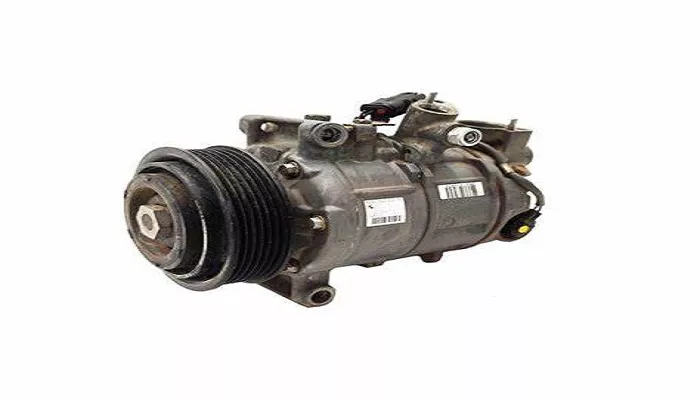The air conditioning (AC) compressor is a critical component in your BMW’s climate control system. When it fails, you may experience weak cooling, strange noises, or complete AC system failure. Replacing a BMW AC compressor can be expensive, but the cost varies depending on factors such as the model, compressor type, labor charges, and whether you choose OEM (Original Equipment Manufacturer) or aftermarket parts.
The Role of the AC Compressor in a BMW
- Compressing Refrigerant: The compressor pressurizes the refrigerant (usually R134a or R1234yf) and circulates it through the AC system.
- Heat Exchange: The compressed refrigerant absorbs heat from the cabin and releases it outside, cooling the air.
- System Lubrication: The compressor contains oil that lubricates the AC system to prevent wear.
If the compressor fails, the entire AC system stops working, leading to discomfort, especially in hot climates.
Signs of a Failing BMW AC Compressor
- Weak or No Cold Air: The AC blows warm or mildly cool air.
- Strange Noises: Grinding, squealing, or rattling sounds when the AC is on.
- Leaking Refrigerant: Oil or refrigerant leaks near the compressor.
- AC Clutch Not Engaging: The compressor clutch does not spin when the AC is turned on.
- Overheating Engine: A failing compressor can strain the engine.
A professional diagnosis with an AC pressure test can confirm if the compressor is faulty.
Types of BMW AC Compressors
Piston-Type Compressors
- Found in older BMW models.
- Durable but less efficient than newer designs.
Scroll Compressors
- More efficient and quieter.
- Used in mid-range BMW models.
Variable Displacement Compressors
- Common in modern BMWs.
- Adjusts cooling output for better efficiency.
Electric Compressors (Used in Hybrid/Electric BMWs)
- Found in BMW i3, i8, and other hybrid models.
- Runs on electric power instead of the engine.
The type of compressor affects the replacement cost.
Cost Breakdown: OEM vs. Aftermarket Compressors
OEM (Original Equipment Manufacturer) Compressors
- Made by BMW or their suppliers (e.g., Denso, Valeo, Bosch).
- Higher cost but guaranteed compatibility.
- Price Range: 400–1,500 (depending on model).
Aftermarket Compressors
- Made by third-party manufacturers (e.g., UAC, Four Seasons, GPD).
- Cheaper but may vary in quality.
- Price Range: 200–800.
Remanufactured Compressors
- Rebuilt OEM compressors with new seals and bearings.
- More affordable than new OEM.
- Price Range: 250–600.
Example Costs for Popular BMW Models:
| BMW Model | OEM Compressor Cost | Aftermarket Cost |
|---|---|---|
| BMW 3 Series (F30) | 500–1,200 | 250–600 |
| BMW 5 Series (G30) | 600–1,400 | 300–700 |
| BMW X5 (F15) | 700–1,500 | 350–800 |
Additional Costs (Refrigerant, Receiver-Drier, etc.)
- Refrigerant Recharge: 100–300 (R134a or R1234yf).
- Receiver-Drier / Accumulator: 50–150 (must be replaced to prevent contamination).
- O-Rings & Seals: 20–50.
- Flushing the AC System: 100–200 (if debris is present).
DIY vs. Professional Replacement
DIY Replacement (For Experienced Mechanics Only)
- Pros: Saves labor costs.
- Cons: Requires AC tools (vacuum pump, manifold gauges). Risk of improper installation.
- Estimated DIY Cost: 200–800 (parts only).
Professional Replacement (Recommended)
- Pros: Warranty on parts and labor. Proper refrigerant handling.
- Cons: Higher cost.
- Best For: Most BMW owners due to complexity.
How to Save Money on BMW AC Compressor Replacement
- Compare Quotes: Get estimates from dealerships and independent shops.
- Use Aftermarket or Remanufactured Parts: Can cut costs by 30-50%.
- Check Warranties: Some shops offer 1-2 year warranties.
- Avoid Delaying Repairs: A bad compressor can damage other AC components.
Conclusion
The cost of a BMW AC compressor varies widely based on model, part type, and labor rates. On average, owners can expect to pay 800to3,000 for a complete replacement. While DIY installation can save money, professional service ensures reliability and warranty protection.

